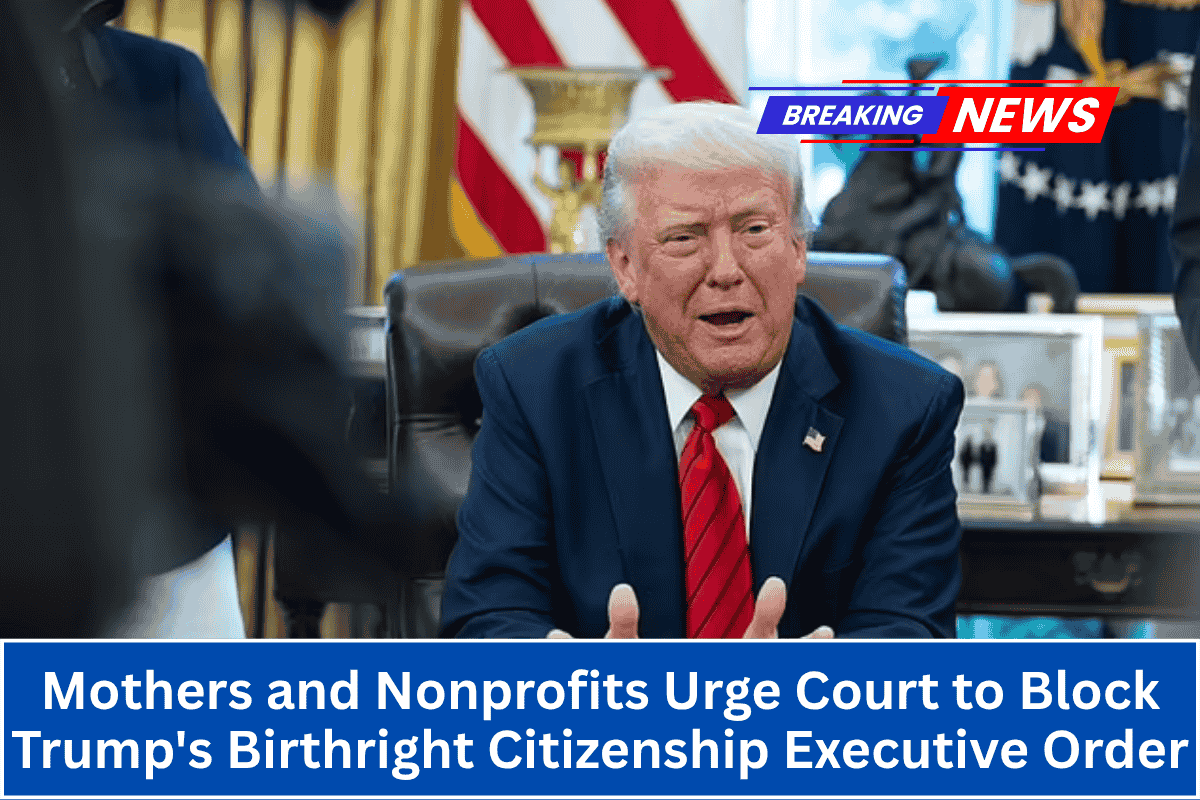Two mothers, one infant, and several nonprofit organizations are fighting to block a controversial executive order issued by President Donald Trump that seeks to change the interpretation of birthright citizenship in the United States.
The executive order, issued on January 20, 2021, attempts to limit birthright citizenship for children born in the U.S. to undocumented mothers, a move that has sparked a significant legal battle.
The Executive Order and its Implications
The core of the dispute centers around President Trump’s Executive Order 14160, which attempts to rewrite the interpretation of the Citizenship Clause of the 14th Amendment.
This order proposes that a child born in the U.S. to an undocumented mother would not automatically gain citizenship unless the father holds some form of legal status in the country.
This interpretation challenges a longstanding principle, known as jus soli, which grants citizenship to all individuals born on U.S. soil, regardless of their parents’ immigration status.
The plaintiffs argue that the executive order violates the clear text of the 14th Amendment, which states that “All persons born or naturalized in the United States, and subject to the jurisdiction thereof, are citizens of the United States.”
The Legal Case Against the Executive Order
On July 2, the plaintiffs filed a 55-page motion for partial summary judgment, urging U.S. District Judge Timothy Kelly, a Trump appointee, to issue an injunction to prevent the enforcement of the executive order.
The plaintiffs argue that enforcing the order would cause significant harm to them and their children, stripping them of their right to citizenship.
Their motion insists that the order violates the 14th Amendment’s Citizenship Clause, which has historically granted citizenship to all persons born in the U.S. The plaintiffs stress that the Constitution does not contain any qualifiers based on a parent’s immigration status.
They point out that the text only requires that a person be born in the U.S. and be “subject to the jurisdiction thereof,” which they argue clearly applies to children born to undocumented immigrants.
The Trump Administration’s Argument
The Trump administration counters the plaintiffs’ arguments by referencing the 1884 U.S. Supreme Court case that interpreted the Citizenship Clause to mean that a person must owe “direct and immediate allegiance” to the United States for the country’s jurisdiction to apply.
The administration argues that children born to undocumented parents do not owe “direct and immediate allegiance” to the U.S. and should therefore not be granted automatic citizenship.
However, the plaintiffs argue that this interpretation is outdated and that the historical understanding of the 14th Amendment, as well as more than a century of legal precedent, confirms that all children born on U.S. soil are citizens, regardless of their parents’ legal status.
They emphasize the importance of the landmark Supreme Court case Wong Kim Ark, which reaffirmed birthright citizenship for children of non-citizens born in the U.S.
Historical and Legal Precedents
The plaintiffs’ legal team points to the long-standing legal and political consensus that children born in the United States are citizens. They note that since the Wong Kim Ark decision, the Supreme Court has consistently upheld the Citizenship Clause, never questioning the broad interpretation of birthright citizenship.
The plaintiffs argue that Trump’s executive order is an unconstitutional attempt to alter these precedents without legal justification.
What’s at Stake
If the executive order is allowed to take effect, the plaintiffs argue that it would have far-reaching consequences, stripping citizenship from thousands of children born to undocumented parents.
This would not only undermine the principles of equality and fairness enshrined in the 14th Amendment but also create a permanent underclass of individuals without full rights and protections under U.S. law.
The plaintiffs’ legal team is pushing for a swift resolution to block the executive order, citing the urgency of protecting the rights of U.S.-born children.
As the legal battle continues, it remains to be seen how the courts will address the potential conflict between the Trump administration’s executive order and the constitutional protections afforded by the 14th Amendment.






